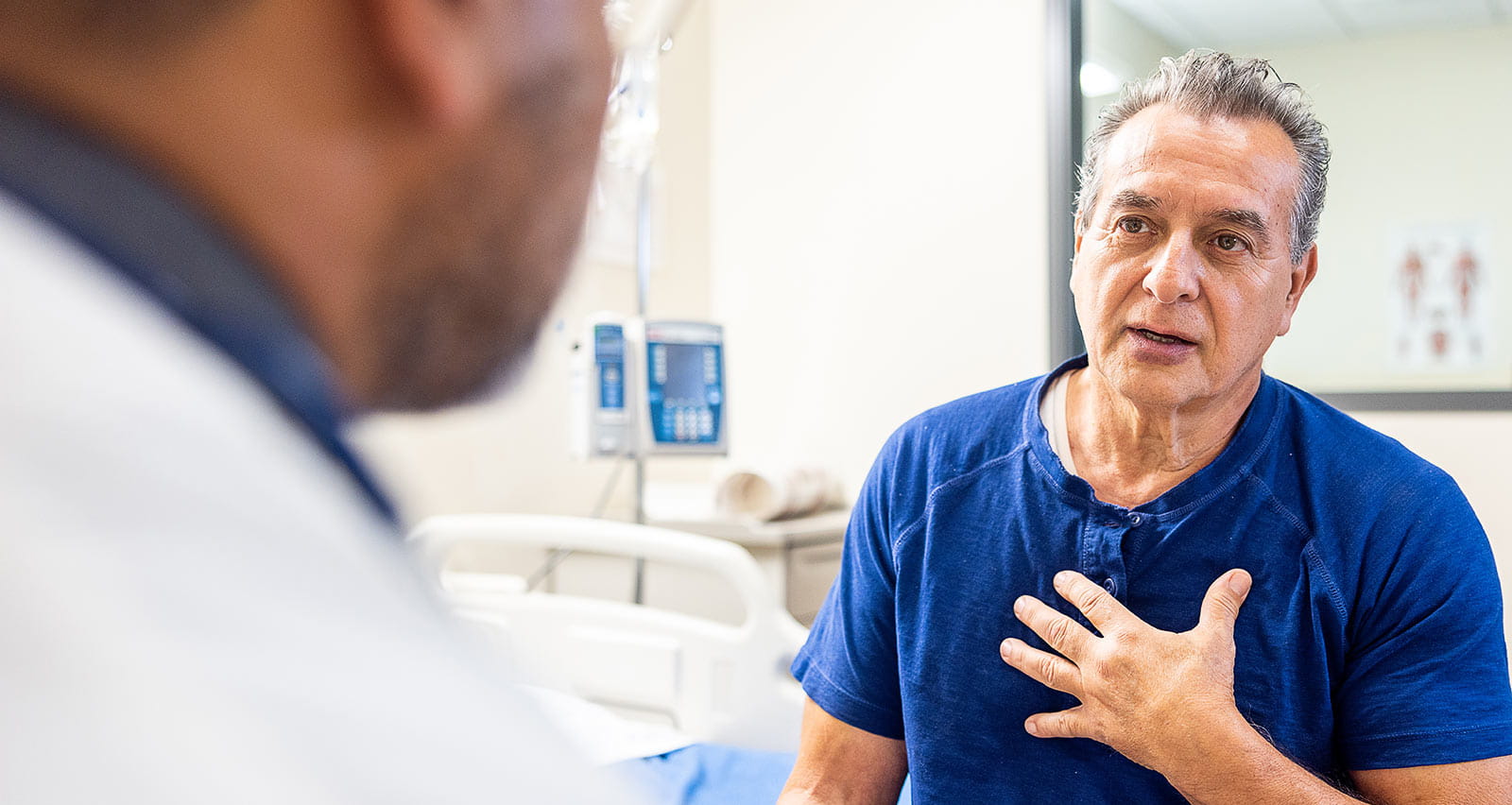
Dilated Cardiomyopathy
Dilated cardiomyopathy (DCM) is a type of heart disease in which the walls of the pumping chambers of the heart (ventricles) stretch and thin out. This enlarges the chambers and weakens their ability to pump blood effectively. The most common type of cardiomyopathy, DCM is more likely to develop in men than women and typically begins in middle age. It can also occur in children.
Your health is important. Get expert care.
For an appointment with one of our cardiomyopathy specialists, call 216-844-3800.
Schedule with a cardiomyopathy specialistWhat Causes DCM?
The cause of dilated cardiomyopathy is often unknown. Although not considered primary risk factors, coronary artery disease and high blood pressure may increase the risk of developing DCM. Additional risk factors may include:
- Genetics
- Alcohol abuse and/or recreational drug use
- History of certain viral, bacterial or parasitic infections
- History of heart attack
- Autoimmune disorders
- Certain medications
Symptoms of Dilated Cardiomyopathy
When the disease is in its early stages, there may not be any symptoms. As the disease progresses and the ventricle walls become weaker, symptoms may include:
- Shortness of breath
- Fatigue
- Swelling in the legs, ankles and feet
- Chest pain
- Heart palpitations
- Dizziness or fainting
How Is DCM Diagnosed?
If a patient has any of the symptoms listed, a complete medical history will be taken and a physical exam performed. If DCM is suspected, one or more of the following diagnostic tests may be performed:
- Chest X-ray. Evaluates any enlargement of the heart.
- Echocardiogram. An ultrasound exam to evaluate the heart’s motion, blood flow and pumping efficiency of the ventricles.
- Electrocardiogram (ECG). A noninvasive test to record the heart’s electrical activity.
- Blood tests. Checks for infections or diseases that may contribute to the development of DCM.
- Exercise stress test. Evaluates how well the heart performs during exercise.
- Cardiac catheterization. A minimally invasive procedure to measure the pressure in and around the heart. In some cases, the procedure may also be used to take a biopsy of the heart muscle to check for damage.
Personalized Treatment for Dilated Cardiomyopathy
Treatment for DCM depends on how advanced the disease is, the severity of the symptoms and the cause. Treatment plans may include one or more of the following:
- Lifestyle Modifications
-
In some cases, early-stage DCM may be effectively managed with lifestyle modifications alone. Recommendations may include:
- Reach and maintain a healthy weight
- Eat a heart-healthy, low-sodium diet
- Get regular, moderate exercise as approved by your doctor
- Quit smoking
- Limit or eliminate alcohol use
- Manage stress levels
- Monitor fluid intake
- Get enough quality sleep
- Medical Therapies
-
In addition to lifestyle modifications, there are a variety of medications that may be prescribed to slow the progression of DCM, manage symptoms and, in some cases, improve overall heart health. The type of medication will depend on each person’s case and the severity of symptoms. Examples of potential drug therapies include ACE inhibitors, diuretics, beta blockers, anticoagulants and digoxin.
- Implantable Devices
-
Some patients with DCM may develop complications such as heart failure, irregular heartbeat or sudden cardiac death. To reduce these risks, artificial pacemakers and implantable cardioverter-defibrillators may be recommended as part of the treatment plan. These devices have been shown to help prevent sudden cardiac death, improve symptoms and reduce risk of hospitalization.
- Surgery
-
Patients with advanced disease who are not responding to medical therapy may be considered for heart transplant surgery.
Make an Appointment
Your health is important. Get expert care.
For an appointment with one of our cardiomyopathy specialists, call 216-844-3800.


